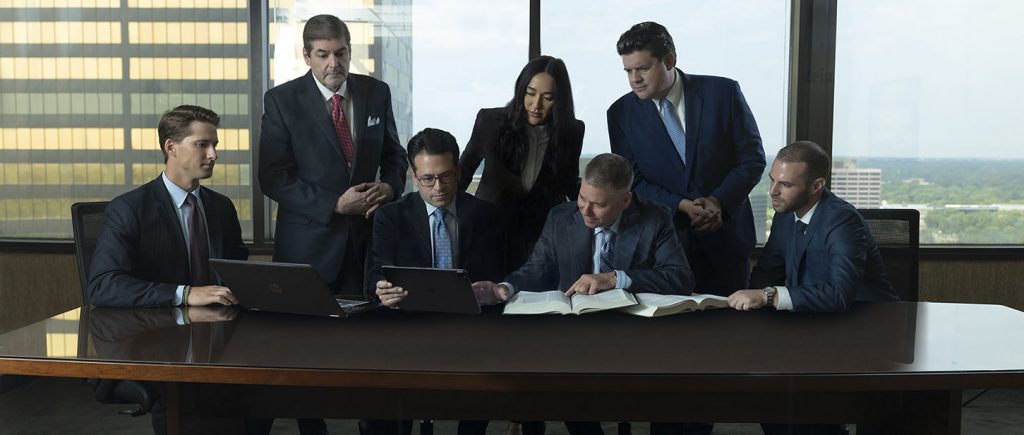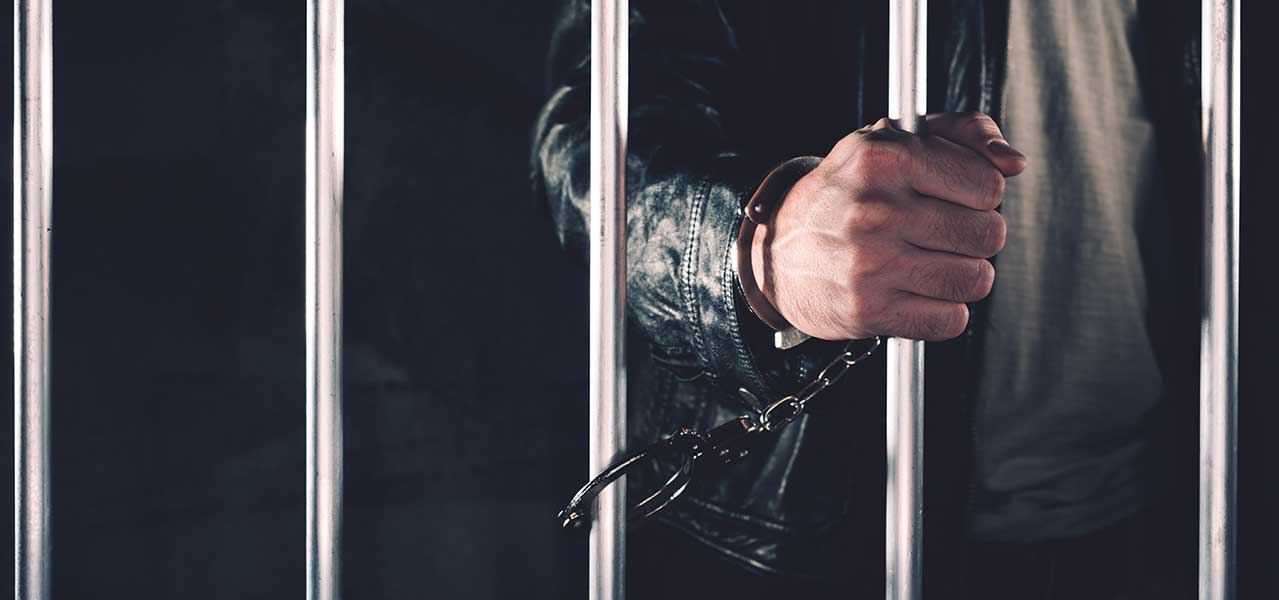What should I do if the police accuse me of a crime?
On television, police routinely arrest a suspect at the scene of a crime or as soon as they know their identity. In reality, the system works differently. How long can the police wait to charge a crime?

There can be a significant delay before charges are issued.
Our clients are frequently shocked to find out they’ve been charged with a felony or misdemeanor after weeks, months, or years since the alleged crime. They ask, “if they had evidence that I was guilty, wouldn’t they have arrested me sooner?” Because of stereotypes perpetuated by television and movies, most people are unaware that investigations can take quite some time in real life. The answer to “how long can police wait?” depends on the nature of the offense, the statute of limitations, and much more.
In most situations, police do not immediately arrest when a complaint is made about a possible crime. Under the Sixth Amendment to the United States Constitution, a defendant has a right to a “speedy trial.” If a charged defendant insists on a speedy trial, there may not be time for the police to conduct a thorough investigation. Because of this, the government doesn’t proceed with a prosecution until they are satisfied they’ve collected enough evidence to take the case to court. Precharge investigation can take much longer in federal cases.
Reasons for a Delay in Charges
There are many reasons for a delay in issuing felony or misdemeanor charges. In some cases, the investigating law enforcement agency or agencies need to conduct a thorough investigation. Some investigative tools that take time include:
- Finding and interviewing witnesses,
- Using phono-lineups or “show up” procedures to identify the suspect,
- Issuing subpoenas to seize evidence,
- Conducting physical or electronic surveillance,
- Conducting scientific, laboratory, ballistic, or forensic analysis,
- Obtaining GPS, cell phone tower, and phone records,
- Locating and analyzing surveillance audio and video,
- Subpoenaing evidence from social media websites,
- Securing and executing wiretaps and pen registers, and more.
Once the investigation is completed, the reports and evidence have to be reviewed by a prosecutor. Except when someone commits a misdemeanor in the presence of a police officer, prosecutors determine the charges, not police officers or law enforcement agents. If the evidence is voluminous or the prosecutor has a large workload, there can be a delay in determining the charges. If you’re asking, “how long can the police wait?” the answer might depend on the complexity of the investigation.
Conversely, some misdemeanors can be charged with a ticket issued by police officers. Misdemeanor charges frequently charged directly by police officers include Retail Fraud, OWI, DUI, OWPD, Driving on a Suspended License (DWLS), Reckless Driving, and Domestic Violence. Even though a police officer may issue a ticket for one of these offenses, the prosecutor has the final decision-making authority. Even in uncomplicated cases, a prosecutor may want the police to investigate further before deciding what crimes to charge.

If a lot of time goes by, does that mean it is less likely that I will be charged?
You can never count on there not being a criminal charge until the investigation is completed and the prosecutor decides not to authorize state and federal charges. The case is dropped when a prosecutor looks at the evidence and denies a warrant. If more evidence is located or found at a future date, the charge can be re-filed and a warrant re-issued. A police officer cannot force a prosecutor to authorize a charge; however, they can keep digging for additional evidence and try to change the prosecutor’s mind.
Should I hire a lawyer if I have not been charged?
An experienced criminal defense lawyer can communicate with the police and prosecutor before filing criminal charges. In some cases, the defense attorney may be able to provide essential information that prevents charges. However, the police or a detective may want to talk with the suspect or person accused of criminal activity in many cases. Remember, anything you say “can and will be used against you.” If the police think you are guilty, they will twist whatever you say to make you look guilty. A veteran lawyer can speak on your behalf and avoid providing the government with additional evidence to use against you. Hiring a reputable, experienced lawyer on a precharge basis can help you avoid being arrested if charges are issued. A sophisticated, retained lawyer can negotiate for an opportunity for you to turn yourself in at the courthouse instead of jail. If you call LEWIS & DICKSTEIN, P.L.L.C. for a free consultation, we can answer all of your questions, including “how long can police wait to bring charges?”
Will hiring a lawyer make me look guilty?
You cannot be arrested or charged for how you “look.” If there is enough evidence, you will be charged. If you hire a respected lawyer, the police and the prosecutor will know you are serious about your defense. An innocent person hires counsel right away in an attempt to avoid charges. Many guilty people know they will be charged, so they wait for the arrest. If a client is innocent, a defense attorney might be able to stop the charges. If a client did something wrong and committed a crime, the attorney can take steps to mitigate the situation, reduce the charges, or get the client help so they can avoid a harsh sentence.
If the police are waiting to get a warrant, what can a lawyer do in the meantime?
Evidence can degrade or become less impactful as time passes. Police officers destroy surveillance videos, lose or taint biological evidence, damage fingerprint evidence or fail to collect fingerprints before they are damaged. Favorable witnesses can become hard to locate if too much time passes. Also, relationships between people change over time, and a once cooperative witness can become unavailable. In some cases, it might benefit the defendant if evidence is destroyed; however, if evidence of innocence is destroyed or lost, that can help the prosecutor. If a defendant, or someone on their behalf, purposefully destroys evidence, that is a separate crime. Unfortunately, police frequently get away with allowing evidence favorable to the defense to be lost or destroyed.
If hired early enough, a defense lawyer can take steps to secure and preserve evidence favorable to their client. If done early, witnesses can be easily located and interviewed. In addition, surveillance recordings can be secured and preserved before the police delay the investigation so long that the recordings are unrecoverable.
An attorney can use evidence obtained on a precharge basis to convince the prosecutor to drop charges or convince a jury that the defendant is not guilty if the case should end up in a jury trial.
How long can police wait to issue charges?
The only definitive limitation on the government relative to how long they can wait to bring a charge is the applicable statute of limitations. For most crimes, the limitation period is six (6) years. The statute of limitations can be ten (10) years or more for more severe offenses. There is no statute of limitations in the most severe cases, like murder or CSC 1st, which the prosecutor can file anytime.

Lawyers with Experience Defending and Protecting Their Clients
If you think you may be the subject of a criminal investigation, you need to hire counsel immediately to protect and defend yourself. The attorneys with LEWIS & DICKSTEIN, P.L.L.C. have decades of experience defending and protecting clients on a precharge basis. We have been able to get investigations dropped and prevent criminal charges for countless clients. In cases where charges are unavoidable, we have been able to use any delay as an opportunity to discover crucial evidence, take measures to reduce charges, and develop a strategy to mitigate an eventual sentence.
You know the expression, “an ostrich buries its head in the sand?” An ostrich that buries its head does not avoid trouble; it just delays the inevitable. Do not bury your head in the sand and wait to see if you get charged. Be proactive, and let us help you get out of a bad situation.
Call us today at (248) 263-6800 for a free consultation or complete a Request for Assistance Form. We will contact you promptly and find a way to help you.

